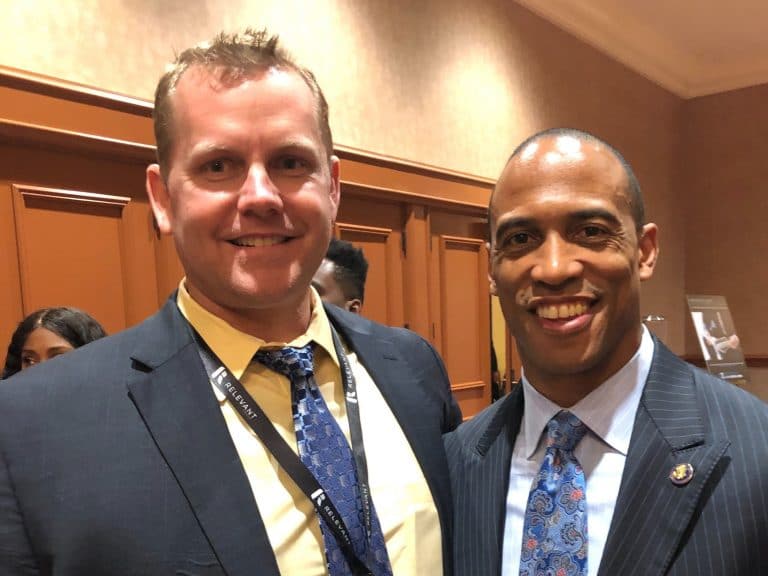Interest in Opportunity Zone Projects Surging at National Conference, Expert Says
Author:

Managing Director

For commercial and multifamily real estate developers, alignment and communication are the keys to raising capital amid an onslaught of investor demand, advises Mike Harris of CREModels.
LAS VEGAS, May 16, 2019 /PRNewswire/ — As developers court real estate private equity investors for projects inside Qualified Opportunity Zones, they can gain an edge by coming to the table with maximum transparency and powerful marketing materials, said Mike Harris, Managing Director of CREModels, during a panel discussion at the 2019 Opportunity Zone Expo.
“What we’re hearing from private-equity fund managers is that too many prospective partners are approaching them with attractive projects in Opportunity Zones, but inadequate clarity on critical fronts,” Harris told attendees.
Billed as the largest conference focused on the much-discussed federal tax incentives for low-income areas, the Opportunity Zone Expo was held May 9-10 at the Mandalay Bay Resort & Casino. Harris joined a May 10 panel titled “Market Your Potential: How to Highlight the Promise of a Fund, Project or Opportunity Zone.”
At the well-attended conference, a sense of optimism was palpable as hundreds of professionals such as investors, developers, attorneys, CPAs and municipal officials flocked to sessions on regulations, capital deployment, fund structures and more, Harris said. “Last month, the Treasury Department and IRS clarified their intentions for the Opportunity Zone program by issuing a second installment of proposed regulations,” he noted. “Now you can really feel the excitement. There’s a sense that, finally, this is moving forward.”
Harris’ CREModels frequently works with real estate developers who are raising capital for Opportunity Zone projects. The St. Petersburg, Fla.-based real estate tech and services firm is known for its flagship real estate acquisitions and development platform, The CRE Suite, which includes pre-built Opportunity Zone development models and Opportunity Fund management tools as well as marketing package templates that streamline the fundraising process. CREModels’ website also offers a Qualified Opportunity Zones Resource Center to keep stakeholders up-to-date as the program evolves.
During the panel discussion, Harris emphasized the need for long-term partners on Opportunity Zone projects to make sure their strategic interests are fully aligned.
“On a typical real estate project, investors and developers can partner up, get the deal done and move on,” he said. “But with Opportunity Zones, the parties need to maintain a high degree of cooperation, respect and mutual agreement for the duration of the 10-year hold. For developers, that means it’s important to put your best foot forward from the outset.”
Qualified Opportunity Fund managers are seeking development partners on programmatic, multiple-project platforms, Harris noted. However, they are understandably cautious about entering into such joint ventures. “At CREModels, our clients are succeeding in getting their deals fully funded by leveraging transparency and clear communications,” he said. “They’re coming to the table with professional marketing packages that include comprehensive development pro-forma models and convey strong understanding of the private equity capital structures in play. It makes all the difference.”
Under the proposed regulations, investors pay no capital gains on the increased value of Opportunity Zone investments so long as those investments are held for at least 10 years. Given that would-be partners will need to work together over the long term, they should be sure their interests, priorities and even company cultures are a good fit prior to embarking on Opportunity Zone projects, Harris said.
“With the surging demand from capital partners, developers are often taking on projects that are not only much larger, but that are also outside their typical property type expertise,” he said. “They often need to court an entirely different set of investors with whom they are completely unfamiliar.”
Clarity and transparency, again, are critical to making those inroads, according to Harris. “Otherwise, you run the risk of chasing down investors who ultimately spurn the proposal,” he said, “and that sends you back to previous prospects with your hat in hand.”
About CREModels
CREModels provides transactional, managed and enterprise services for commercial and multifamily real estate fund managers, investors and developers. The St. Petersburg, Fla.-based firm’s Transactional Services division performs full-service real estate due diligence, lease abstraction, acquisition underwriting and deep-dive reviews of books and records. The Managed Services division handles CAM reconciliation, asset management and portfolio review. The Enterprise Solutions division creates custom technology and big-data integrated solutions. CREModels’ flagship software platform, The CRE Suite, serves as the backbone on top of which all services are provided. The CRE Suite optimizes the workflow of acquisitions teams, fund managers and developers from pursuit through acquisition and all the way through disposition. For more information, visit CREModels.com.
